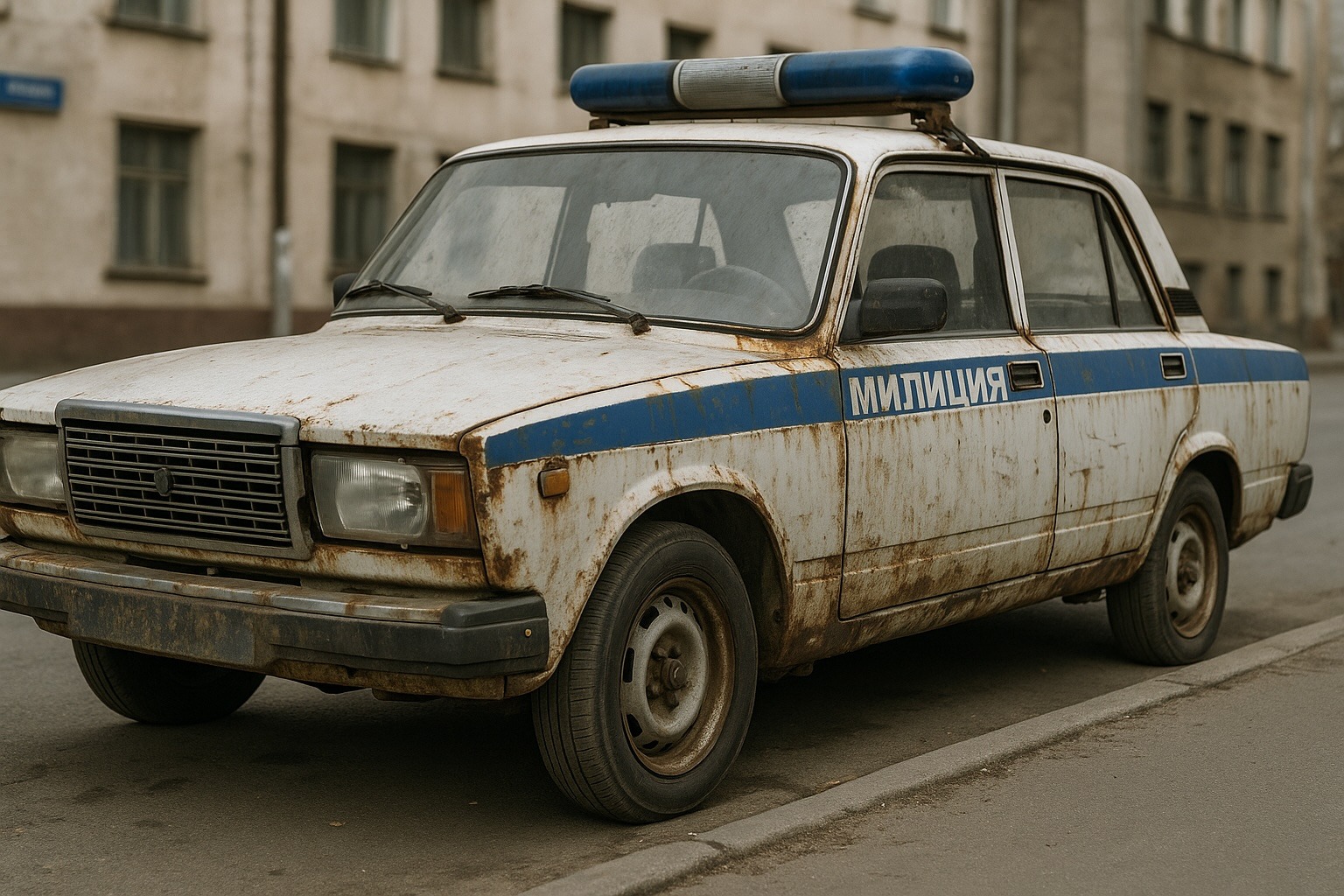
Russia’s full-scale invasion of Ukraine was designed to project strength abroad, but the cost at home is far more corrosive than the Kremlin admits. The war is slowly unpicking the very institutions responsible for holding Russian society together, and nowhere is this clearer than in the collapse of the Ministry of Internal Affairs, the MVD, the backbone of day-to-day security. The state still projects power, but it’s losing control of the mundane, unglamorous business of keeping streets safe, disputes contained, and communities orderly.
This decay isn’t dramatic or cinematic. It’s the kind of erosion that happens behind closed doors, inside emptying police stations, hollowing payrolls, and stretching overstressed officers until they either resign, burn out, or simply disappear. What remains is a brittle shell of the pre-war policing system, a system that cannot be rebuilt while the war economy cannibalises the very people it needs.
The MVD is now short between 152,000 and 174,000 officers, a deficit so large that the minister publicly admitted the situation was critical, an extraordinary concession in a system that normally denies everything until the building is already on fire.
In many regions, that structure is already burning. Some forces have shrunk by half, others by more, with vacancy rates up to 90% in the East and North Caucasus, a collapse tracked by Jamestown’s assessment of Russia’s internal police capacity. On the ground, this means towns patrolled by officers working 16-hour days, precincts functioning with skeleton crews, and entire districts effectively abandoned to crime, disputes, and whatever informal authority steps in to fill the vacuum.
The pre-existing problems, absurd centralisation, suffocating bureaucracy, laughable resource allocation, have become fatal under wartime strain. The MVD’s command structure, already sluggish and politicised, is now overwhelmed by sheer force depletion, a reality analysed in CREECA’s exploration of Russia’s policing centralization and its operational consequences. The few remaining officers spend more time chasing clearance quotas, “solvable” crimes like petty theft and public drunkenness, than preventing serious violence. And the serious violence is rising.
The economic engine behind this collapse is simple: the war economy has twisted Russia’s labour market beyond recognition. Massive state spending, particularly in defence manufacturing and military payrolls, has overheated the economy and triggered a surge in inflation that erodes every fixed-salary job in the country. Police pay was already poor; now it’s catastrophic. When a frontline contract soldier earns more than twice an officer’s salary, before bonuses, the gravitational pull is unavoidable.
The Kremlin, desperate for manpower, turned to a morally and legally corrosive tactic: paying MVD officers bonuses to push detainees into military service. One recruit could equal half a month’s police salary, and two recruits could exceed their entire monthly pay. It’s the kind of incentive structure that turns policing into bounty hunting and the justice system into a recruitment pipeline for the trenches.
And then there is the convict-soldier programme, perhaps the most consequential internal security decision Russia has made in the post-Soviet era. More than 180,000 convicted criminals have been sent to the front, pardoned, and allowed to return home with combat experience, psychological trauma, and, frequently, illegal weapons. The Global Initiative Against Transnational Organized Crime detailed how this mass demobilization is transforming Russia’s criminal landscape. The result is a violent, mobile, combat-trained population with almost no legal constraints.
Serious crimes have surged to a 15-year high, driven disproportionately by returning fighters, a pattern documented in Jamestown’s analysis of wartime crime. The cases are brutal: murders by newly pardoned killers, armed robberies committed with trophy weapons, organised crime groups absorbing combat veterans as muscle, and rural communities terrified by men who see violence not as crime but as continuation of service.
Yet the Kremlin is secure, because the security crisis affects the wrong institution. The MVD’s collapse does not undermine the state’s political enforcement arm. Rosgvardiya, the regime’s private muscle, remains well funded, well equipped, and fiercely loyal, with the ISW tracking its expanding capabilities in internal repression. In other words, the part of the security apparatus that protects the public is falling apart; the part that protects the regime is thriving.
This is leading to a two-tier state: a stable political core centred on Moscow and an increasingly unstable periphery left to its own devices. In the regions, the vacuum created by MVD withdrawal is being filled by vigilante groups, paramilitarised “community organisations,” and far-right networks like Russkaya Obshchina, a movement exposed by Meduza for its expanding activities and its quiet cooperation with elements of law enforcement. Some operate with tacit state approval. Others simply operate because no one is left to stop them.
What emerges is a model of internal fragmentation:
Moscow remains a fortress, but the rest of the country is slowly atomising. Public trust dissolves as ordinary people witness their police stations emptying, their streets getting rougher, and their safety depending increasingly on whoever is willing to step into the void.
This isn’t the 1990s. It’s not a sudden collapse or a dramatic breakdown. It’s a gradual hollowing of institutional capacity, death by recruitment incentives, wage disparity, policy neglect, and political prioritisation of repression over governance. RUSI’s analysis warns of widening internal gaps that the Kremlin cannot close without rebuilding the very institutions the war is destroying. That rebuilding isn’t happening.
Russia isn’t headed for revolution. It’s headed for chronic instability.
A country where the centre holds, but the edges crumble, slowly, unevenly, and dangerously.
A war can break an army.
This one is quietly breaking the country behind it.
